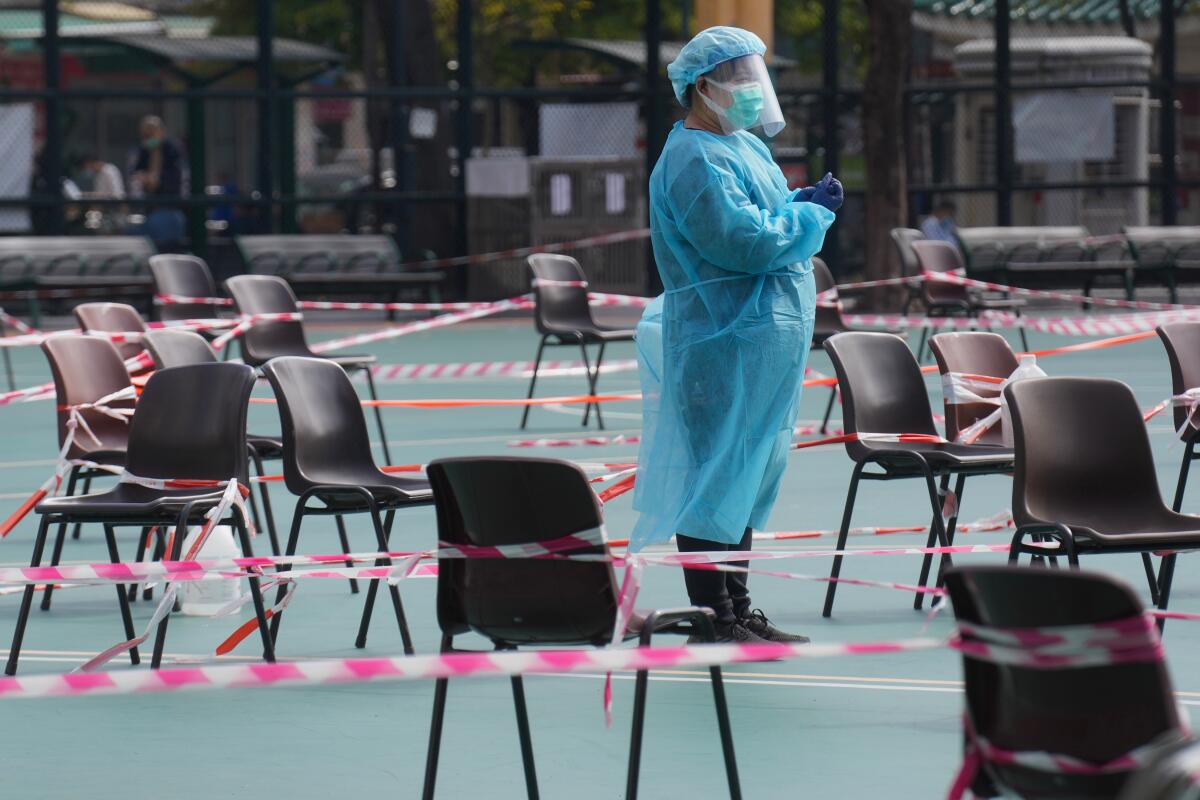COVID-19 cases and deaths continue to fall globally, WHO reports

- Share via
GENEVA — The number of new coronavirus cases reported globally dropped by 16% last week, marking a monthlong decline in infections, according to figures from the World Health Organization.
In its weekly report on the pandemic, issued late Tuesday, the United Nations health agency also said that COVID-19 deaths fell by 10%, continuing a drop in fatalities first seen last week.
The WHO said there were more than 10 million new cases and about 60,000 deaths globally. The Western Pacific was the only region where COVID-19 increased, with about one-third more infections than the previous week. Deaths rose by 22% in the Western Pacific and about 4% in the Middle East, while declining everywhere else.
The WHO said the Omicron variant remains overwhelmingly dominant worldwide; among virus sequences shared with the world’s largest publicly accessible database, more than 99.5% were Omicron while only 0.3% were Delta. In the last month, none of the other worrying variants — including Beta, Gamma, Lambda or Mu — has been reported, although the WHO said there were surveillance challenges in many countries.
California’s strict indoor mask rules at schools have helped prevent major coronavirus outbreaks on campuses.
Numerous countries across Europe, including Britain, Sweden and Denmark, have lifted nearly all their COVID-19 restrictions as cases have fallen dramatically while immunization campaigns have progressed. In the U.S., scientists have estimated that about 73% of the population is now immune to Omicron and that any future COVID-19 spikes will require far less disruptive interventions to control them.
Still, the WHO has repeatedly said it was too early to declare the pandemic over and warned that if the coronavirus is allowed to continue spreading, it will have further chances to mutate into a potentially more deadly or transmissible version.
More to Read
Sign up for Essential California
The most important California stories and recommendations in your inbox every morning.
You may occasionally receive promotional content from the Los Angeles Times.











